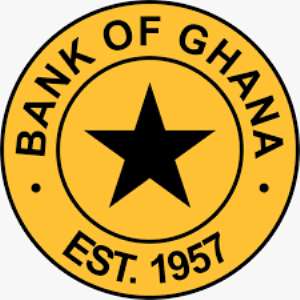
Petition for Regulatory Intervention in Respect of GCB Bank’s New E-Banking Tariffs
We, the undersigned account holders and concerned citizens, respectfully submit this petition pursuant to the mandate and regulatory authority of the Bank of Ghana under the Banking Act, 2004 (Act 673) as amended, and the Consumer Protection Act, 2012 (Act 829), seeking immediate intervention regarding the recent announcement by GCB Bank PLC of revised electronic banking tariffs, scheduled to take effect on May 1, 2025.
The said tariff adjustments, as publicly communicated, include the following: A monthly E-Bundle fee of GHS 15, purportedly to cover electronic transaction alerts, with an exemption for customers above 60 years; A 1% charge on mobile app Bank-to-Wallet transfers, capped at GHS 20;
An ATM usage fee of GHS 20 per transaction for withdrawals exceeding a GHS 10,000 threshold.
We contend that these charges are arbitrary, economically discriminatory, and legally questionable on the following grounds:
1. Breach of Contractual and Statutory Obligations
GCB Bank’s unilateral imposition of new fees, without express notice and consent from its customers, constitutes a significant alteration of pre-existing contractual terms. This conduct may be construed as a repudiatory breach of contract, as recognised in the common law of Ghana and supported by legal precedent such as Thornton v. Shoe Lane Parking Ltd [1971] 2 QB 163, where it was held that onerous terms must be fairly brought to the attention of the other party at the time of contract formation.
2. Violation of Consumer Protection Laws
Under Section 5 of Act 829, consumers are entitled to fair, equitable and transparent dealings. Moreover, Section 47 prohibits the imposition of unfair, unreasonable, or unjust contract terms. The application of a GHS 15 monthly fee for SMS alerts—a service which costs a fraction of that amount to deliver—constitutes price gouging, and is manifestly disproportionate to the cost incurred by the bank.
3. Abuse of Market Position and Public Trust
GCB Bank’s entrenched position, especially in the public sector salary ecosystem, may confer on it a degree of market dominance. The manner in which these charges are introduced, with limited ability for customers to opt out or access comparable alternatives, may amount to an abuse of dominant position and raise questions under the doctrine of economic duress. The situation creates a coercive financial environment for customers who are essentially held captive by the system.
4. Undermining of Financial Inclusion and Digitalization Policy Objectives
These tariffs undermine national objectives aimed at encouraging digital banking, reducing reliance on physical branches, and promoting financial inclusion. The imposition of a GHS 20 fee for ATM transactions over GHS 10,000 disincentivizes digital banking behaviour and imposes a regressive cost burden on clients seeking efficient financial services.
RELIEFS SOUGHT
In light of the above, we respectfully request that the Bank of Ghana: Immediately reviews the legality, necessity, and proportionality of the revised charges by GCB Bank; Issues a regulatory directive to GCB Bank to suspend the implementation of the new tariffs pending the outcome of a formal review; Ensures that all future fee adjustments by regulated banks are subject to transparent justification, stakeholder consultation, and regulatory scrutiny in line with the fiduciary obligations of financial institutions; Upholds the public interest by ensuring that banking institutions act in accordance with the principles of fair dealing, non-discrimination, and economic justice. We rely on your good office to take urgent and appropriate action in the interest of justice, consumer protection, and public confidence in Ghana’s financial system.
Respectfully submitted,
Mileba Godwin Kwame (Customer)
Mac-Wonder Akpalu (Customer)
Marshall Agobah (Customer)
Daniel Amemasor (Customer)


